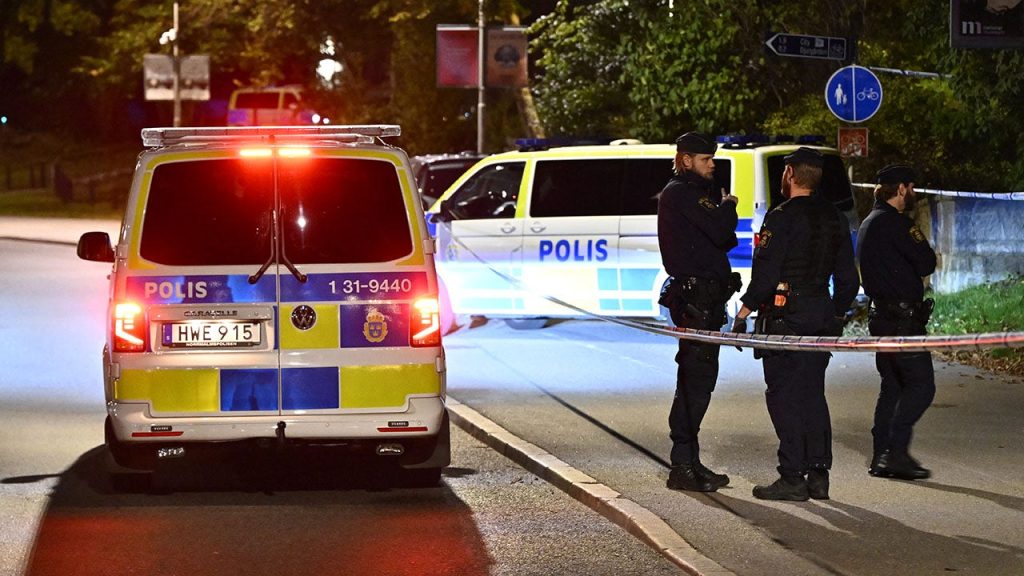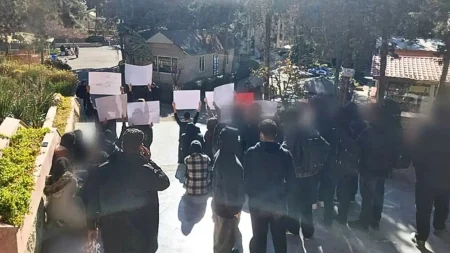Iran’s recruitment of children for attacks against Israeli and Jewish targets in Europe marks a disturbing escalation in its proxy war tactics. This alarming trend, observed in Sweden, Belgium, and Norway, coincides with a decline in Iranian influence in the Middle East and setbacks for its proxy groups like Hamas and Hezbollah. The use of children, some as young as 13, highlights a new level of desperation and a shift in operational strategy. These young recruits, often contacted through social media platforms like Telegram, TikTok, and WhatsApp, are seen as expendable assets, less likely to arouse suspicion and potentially immune to prosecution due to their age in some countries.
The incidents range from a 15-year-old attempting to reach the Israeli Embassy in Stockholm with a loaded gun to a 13-year-old firing shots at an Israeli defense firm in Gothenburg. The attempted attack on the Israeli Embassy in Brussels, orchestrated by children as young as 14, further underscores the scope of this disturbing phenomenon. The use of explosives, as seen in the Gothenburg attack involving a 16-year-old and a homemade device, adds another layer of concern to the already volatile situation. This demonstrates a willingness to inflict serious damage, potentially jeopardizing civilian lives.
The motivations behind these young recruits’ involvement are complex and multifaceted. While some may be driven by genuine anger and frustration over the Israeli-Palestinian conflict, particularly the recent war in Gaza, others are susceptible to financial incentives. The inability to prosecute those under 15 in countries like Sweden and Norway creates a legal loophole exploited by Iranian recruiters. This legal gap allows them to manipulate vulnerable youths, offering them both financial rewards and a sense of purpose, often cloaked in anti-Israeli rhetoric.
This disturbing trend intersects with existing societal challenges in European countries like Sweden, where a large influx of immigrants has struggled to integrate, creating pockets of vulnerability susceptible to exploitation. The difficulty in assimilation and potential marginalization within these communities can make young individuals more susceptible to the allure of radical ideologies and financial inducements offered by Iranian recruiters. Organized criminal gangs operating within these immigrant communities further exacerbate the problem, potentially creating a pipeline of susceptible recruits for Iranian proxies.
Iran’s weakened position in the Middle East, partially due to Israel’s forceful responses to attacks from Hezbollah and Hamas, has likely contributed to this shift in tactics. Facing declining influence and increasing pressure, Iran seems to be resorting to more desperate measures, leveraging the vulnerability of children to carry out its agenda in Europe. The ouster of Syrian President Bashar al-Assad, a key Iranian ally, has further compounded Tehran’s regional woes, likely contributing to its desire to strike back at Israel through alternative means.
The recruitment of children represents a dangerous new dimension in Iran’s proxy war against Israel. This tactic exploits vulnerable youth, taking advantage of legal loopholes and societal challenges in European countries. It is a cynical maneuver indicative of Iran’s desperation and its willingness to utilize morally reprehensible methods to achieve its objectives. This alarming trend necessitates a concerted effort from European authorities to address the underlying societal issues that contribute to this vulnerability and to strengthen counter-terrorism measures targeting this specific threat. Failure to address these issues risks further escalation and potentially devastating consequences.













